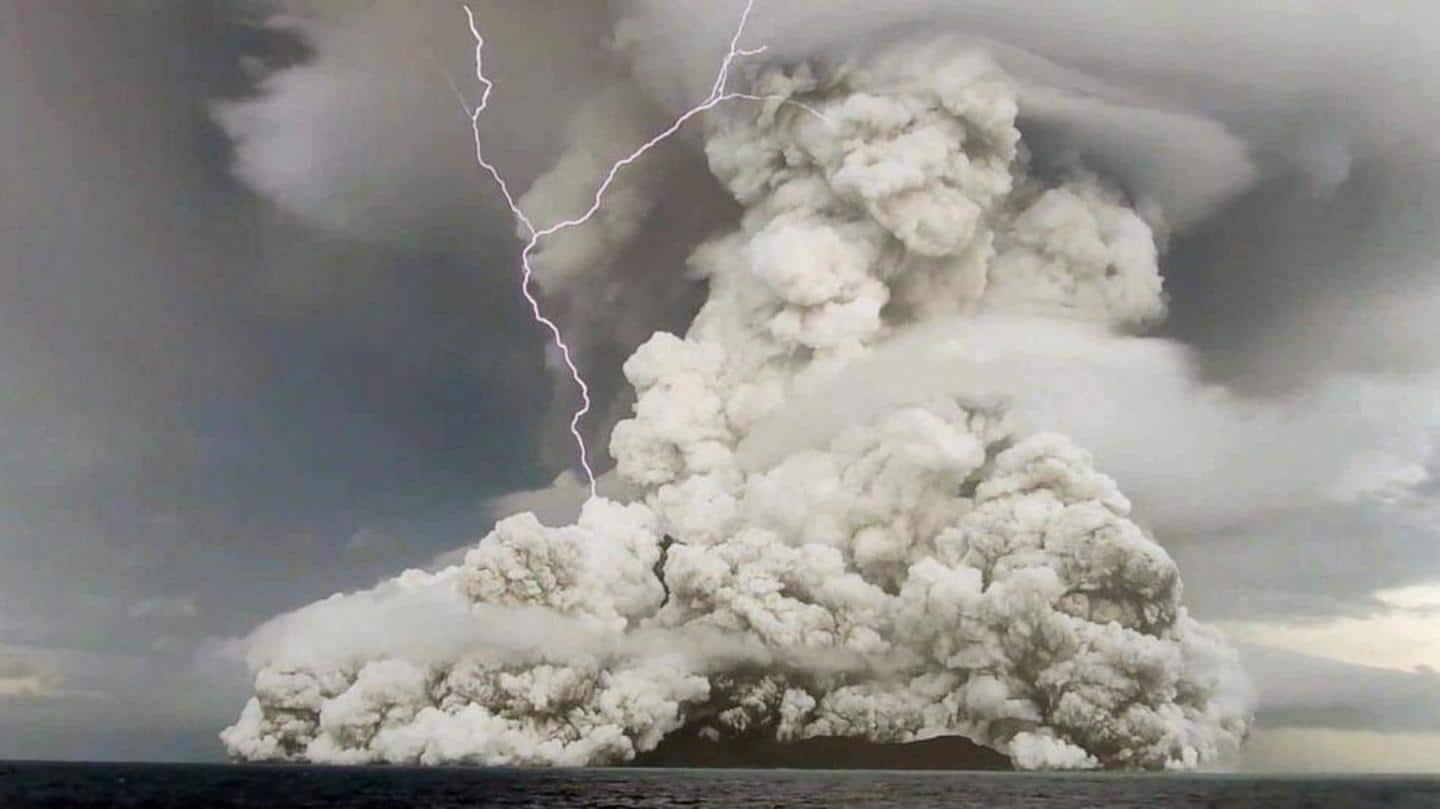Massive Tonga volcano eruption to cause global warming?
What's the story
Do you recall the Hunga Tonga-Hunga Ha'apai volcano eruption near Tonga in January that caused nerve-racking tsunamis and a sonic boom that circled the world twice?
The same eruption sent an unprecedented 50 million tons of water vapor into the atmosphere.
A study has now found this vapor injection could have planet-wide implications. It may lead to a short-term spike in global average temperature.
Context
Why does this story matter?
In the last few decades, we have not seen a volcanic eruption like that of Hunga Tonga-Hunga Ha'apai. The eruption destroyed 90% of the namesake uninhabited Hunga Tonga island and send plumes deep into Earth's atmosphere.
Now, we're learning that the effect of the eruption was much bigger than previously thought.
It needs to be seen how warm Earth is going to become.
Water vapor
Eruption increased moisture level in stratosphere
The Hunga Tonga-Hunga Ha'apai eruption was the largest explosive eruption of the 21st century. It occurred 500 feet underwater, causing a plume of water vapor, gas, and ash to reach an altitude of 58km.
The plume with an unnatural amount of water vapor penetrated Earth's stratosphere. This vapor injection increased the amount of moisture in the stratosphere by about 5%, per the new study.
Consequence
Water vapor emits sunlight it absorbs as heat
Water vapor in the atmosphere absorbs sunlight and then emits it as heat. The volcanic eruption sent millions of tons of water vapor into the stratosphere.
This would lead to the heating up of the Earth's surface. What we don't know, however, is by how much and for how long.
According to the study, surface heating will continue for months.
Cause
Water vapor will stay up longer than other volcanic aerosols
According to the study published in the journal Science, during submarine eruptions, the interaction of hot water and magma can propel huge quantities of water and steam into the eruption column.
Unlike other volcanic aerosols, water vapor is light and is less affected by gravity. Therefore, the large amount of water vapor spewed by Hunga Tonga-Hunga Ha'apai will remain in the stratosphere longer.
Difference
How is this eruption different from normal volcano eruptions?
Most big volcanic eruptions tend to have some effect on the climate. Unlike Hunga Tonga-Hunga Ha'apai, however, they tend to cool the planet.
This happens due to the sulfur dioxide, ash, or rock particles they spew into the atmosphere. Sulfur dioxide can block radiation, while the latter two block sunlight.
This cooling effect is related to their presence on the land.
